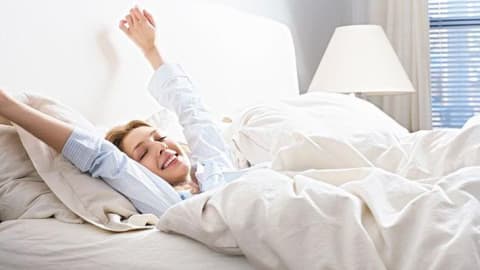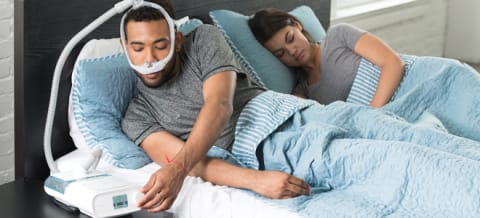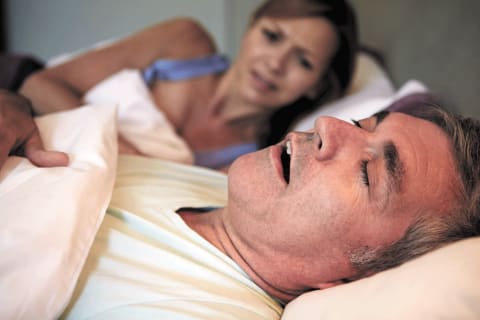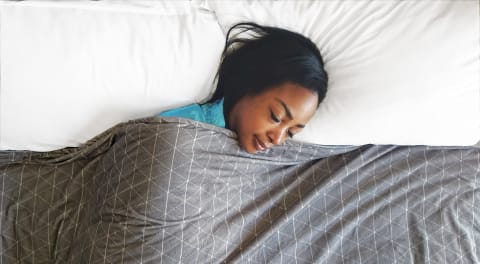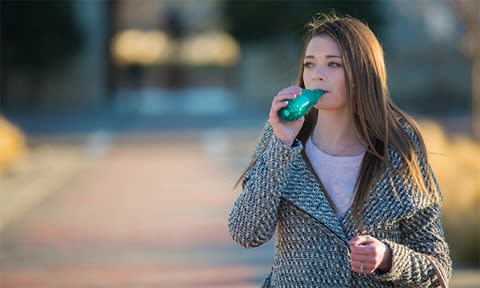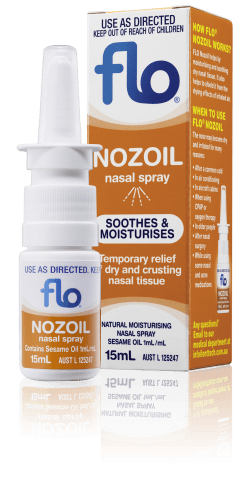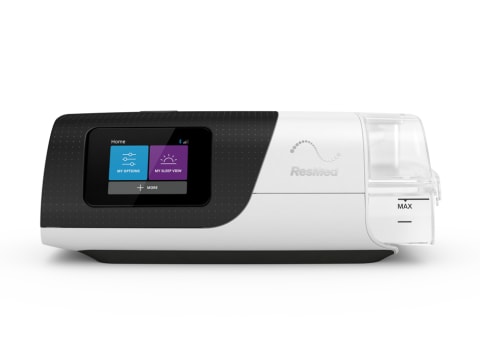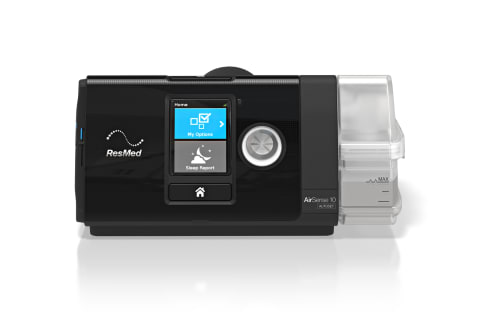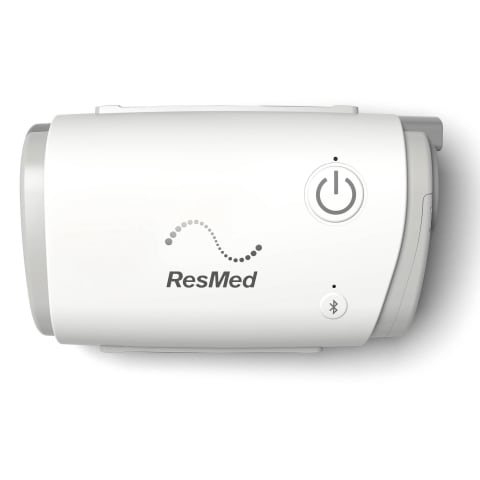CPAP Machines
CPAP Machine (Continuous Positive Airway Pressure)
- Provides fixed, continuous air pressure.
- The most economical option for sleep apnea treatment.
- Recommended for individuals prescribed a set pressure.
APAP Machine (Automatic Positive Airway Pressure)
- Adjusts air pressure automatically based on your breathing patterns.
- Ensures you receive the lowest necessary pressure for maximum comfort.
- Ideal for individuals whose pressure needs fluctuate.
Bi-Level Machine
- Offers different pressure levels for inhalation and exhalation.
- For those needing higher pressure settings or with respiratory and/or cardiac conditions.
- More comfortable for those who find exhaling against pressure difficult.
Choose the Right CPAP Machine for Your Needs
Struggling with sleep apnea and snoring? A CPAP machine helps by keeping your airway open, preventing obstructions that cause apneas. With better, uninterrupted rest, you’ll breathe easier, sleep better and wake up feeling refreshed.
Choosing the right CPAP machine is key to a comfortable and effective therapy experience. There are three main types of CPAP machines, each designed to cater to different needs:
 ResMed AirSense 10 AutoSet 4G CPAP Machine & Mask Package
ResMed AirSense 10 AutoSet 4G CPAP Machine & Mask Package
 ResMed AirSense 10 Autoset For Her 4G CPAP Machine & Mask Package
ResMed AirSense 10 Autoset For Her 4G CPAP Machine & Mask Package
 Philips Respironics DreamStation Auto CPAP Machine with Humidifier
Philips Respironics DreamStation Auto CPAP Machine with Humidifier
 Fisher & Paykel SleepStyle+ Plus Auto CPAP Machine and Mask Pac...
Fisher & Paykel SleepStyle+ Plus Auto CPAP Machine and Mask Pac...
CPAP is used for Obstructive Sleep Apnea treatment. ALWAYS FOLLOW THE DIRECTIONS FOR USE. When considering whether CPAP is right for you, speak to your doctor.
CPAP therapy is typically used for the treatment of obstructive sleep apnea (OSA), a condition where your breathing gets interrupted while you sleep. This can lead to poor sleep quality, daytime tiredness and even long-term health issues if left untreated. Other types of sleep-disordered breathing, like central sleep apnea (CSA), and certain respiratory conditions are not treated with CPAP. They will require more specialised forms of treatment.
There are three main types of CPAP machines available:
Fixed pressure CPAP provides continuous positive airway pressure at a fixed or set pressure level. This is a great option if your pressure needs are stable and don’t change much. It’s simple and effective for those who know exactly what pressure keeps their airways open.
Automatic PAP (APAP) adjusts the delivered air pressure automatically based on your breathing patterns. If the machine senses that your airway is narrowing, it increases the pressure. When your breathing is stable, it lowers the pressure. This makes it a more flexible and comfortable choice for people whose pressure needs might vary throughout the night.
Bilevel or Variable PAP (BiPAP/VPAP) alternates between two levels of delivered air pressure, one for inhalation and one for exhalation. This can be helpful if you find it difficult to breathe out against the constant pressure of a standard CPAP machine. BiPAP machines are often recommended for people with more complex breathing issues.
A CPAP machine has several parts that work together to help you breathe comfortably while you sleep. The main unit produces a steady stream of air to keep your airways open throughout the night. This air travels through a flexible tube, which connects the CPAP machine to your CPAP mask. The mask then delivers the air directly to you.
CPAP mask leaks happen when excess air escapes, often accompanied by a loud hissing sound. The good news is that they’re usually preventable with the right fit and care.
First, make sure your CPAP mask is correctly sized and fitted by following the instructions on the user guide. A well-fitted mask should be snug but not overly tight. If you’re unsure, our CPAP consultants can help you find the right size and fit.
The type of mask you use also matters. Full-face masks may be better for mouth breathers, while nasal masks or nasal pillows suit those who breathe primarily through their nose. Over time, masks can wear out and lose their seal, so it’s important to replace your mask every 6 to 12 months. Regular cleaning also helps maintain a good mask seal. Daily cleaning of the cushion or nasal pillows and a weekly deep clean of the whole mask can prevent buildup that affects the seal.
It’s normal to take some time to adjust to CPAP therapy, but if you’re feeling discomfort, a few tweaks might help.
A common issue is the mask feeling too bulky or restrictive. If this is the case, you might benefit from switching to a different mask style. There are plenty of options designed for comfort.
Special CPAP pillows, which have cutouts to accommodate your mask and tubing, are also available to help reduce pressure on your face and improve your sleep position.
If discomfort persists, check with your CPAP consultant or doctor.
If you’re still feeling excessively tired, experiencing frequent mask leaks, struggling to exhale, or hearing complaints about loud snoring, your CPAP settings might not be right for you.
In this case, it’s best to consult your sleep physician or CPAP consultant. CPAP pressure adjustments should always be done under professional supervision to ensure safe and effective treatment.
Yes! Sove CPAP Clinic has a team of sleep physicians, CPAP consultants and respiratory specialists who can assist with troubleshooting. Whether you need a face-to-face appointment or a telehealth consultation, we have a dedicated team available to ensure your CPAP therapy is as smooth as possible.
Different parts of your CPAP machine wear out at different times. Masks and cushions typically need replacing every 6 to 12 months, while air filters should be swapped out at least every two months or sooner in dusty environments.
It also depends on how often you use your CPAP machine and environmental factors. Following the manufacturer’s guidelines will ensure your machine continues to work effectively.
Some CPAP machines have data tracking apps, like ResMed’s myAir, Philips’ DreaMapper and F&P’s Sleepstyle app, that allow you to monitor your therapy. However, regular check-ins with your sleep physician or CPAP consultant provide a more detailed understanding of your progress.
Sove CPAP Clinic also offers bulk-billed sleep studies to help assess how well your treatment is working.
Yes, but only under the supervision of your doctor. CPAP therapy can be especially beneficial for expectant mothers with conditions like preeclampsia (high blood pressure during pregnancy). If your doctor recommends CPAP, it’s safe to use and may even improve sleep quality during pregnancy.
Modern CPAP machines are designed to be very quiet, so they won’t disturb your sleep. If your machine starts making more noise than usual, check for a dirty or clogged air filter, as a simple cleaning can often reduce noise levels.
While skipping one night may not be harmful, you could wake up the next day feeling tired, groggy or experiencing headaches, like before starting CPAP therapy.
Remember, you are on treatment to restore your long-term sleep health, so it’s important to use your machine consistently. If you ever consider stopping CPAP, speak to your doctor first.
You’ll know your CPAP therapy is effective when you start feeling more rested, have fewer morning headaches, snore less and experience fewer night-time awakenings. You may also notice better concentration and an overall improvement in well-being.
If you’re unsure, your CPAP consultant or doctor can assess your progress and make any necessary adjustments.
Your doctor will determine whether CPAP is right for you, and a CPAP consultant can help you choose the best machine and mask based on your breathing patterns and comfort preferences.
Sove CPAP Clinic offers CPAP trials and a 30-day money-back guarantee on selected products, so you have the flexibility to find what works best.
At Sove CPAP Clinic, you have multiple purchasing options. You can buy a CPAP machine outrightwith our Lowest Price Guarantee or opt for an interest-free payment plan to suit your budget.
No, but it’s strongly recommended to consult a doctor or CPAP specialist before starting therapy. A sleep study and professional guidance will help ensure your machine settings are correctly adjusted for the most effective treatment.
Your breathing style, comfort preferences and lifestyle habits all play a role in choosing the right mask. If you breathe through your mouth, a full-face mask might work best. If you have sensitive skin or facial hair, certain masks may be more comfortable. If you like to read or watch TV before bed, a smaller mask with a clear field of vision might be preferable.
Yes! CPAP masks come in full-face, nasal, and nasal pillow styles, with different sizes available to suit different face shapes. Popular brands include ResMed, Philips, and Fisher & Paykel. Your CPAP consultant can help you find the best fit for your needs.
Getting used to CPAP therapy can take some time, and many people go through what’s known as the “J-curve effect,” where they initially feel worse before experiencing the benefits. The adjustment period varies for everyone, but several factors can make the process smoother.
This includes ensuring that your CPAP machine is set to the right pressure level for comfort, choosing a well-fitted mask and using your device consistently every night. Educating yourself about the benefits of CPAP can also help with motivation.
At Sove CPAP Clinic, patient support is a top priority. We offer face-to-face consultations at our clinics, as well as telehealth options for those who prefer video calls. If you have any questions or need assistance, you can also reach out via phone, email or our 24/7 live chat service.
Most CPAP machines come with a built-in humidifier, which helps add moisture to the air you breathe, making therapy more comfortable.
Without humidification, the airflow from your CPAP can dry out your nose, mouth and throat, leading to irritation, congestion and even nosebleeds. A humidifier helps reduce these issues, making it easier to breathe and improving overall comfort. This is especially helpful if you have allergies, a cold, or other respiratory conditions.
No, CPAP pressure settings should always be adjusted under the supervision of a doctor or CPAP consultant. These settings are carefully determined based on your sleep study, medical history and the severity of your sleep apnea.
If you have an automatic CPAP machine (APAP), it can adjust pressure on its own based on your breathing patterns. However, even with an APAP machine, it’s still important to check in with your doctor or CPAP consultant to ensure the settings are optimised for you. Making changes on your own could make therapy less effective, cause discomfort or even pose health risks.
To effectively manage sleep apnea and avoid the associated health risks, you should use your CPAP machine every night. Consistency is key to getting the full benefits of therapy.
While CPAP therapy is very effective, some people experience mild side effects when they first start. The good news is that most of these can be managed with small adjustments. Over time, most people find that the benefits of CPAP therapy far outweigh the initial adjustment period.
Common side effects include:
Tiredness – If your mask isn’t fitting properly, air leaks can cause noise and disrupt your sleep. Getting used to therapy can also take time.
Difficulty falling asleep – Adjusting to the mask and air pressure may take a little while.
Mask discomfort – This can happen if the mask is too tight, if pressure settings are too high, or if the mask isn’t the right fit.
Skin irritation – If the mask straps are too tight or if you’re allergic to the mask materials, you might experience redness or pressure marks.
Nasal congestion or dryness – This is common when not using a humidifier or if the humidifier setting is too low.
Bloating or gas – Some people swallow air when using higher pressure settings, which can cause bloating or discomfort.
Dry mouth or excessive saliva – This may happen if your pressure settings are too high or if your mouth opens during sleep.
Sore or red eyes – If your mask isn’t sealing properly, air leaks may cause irritation.
Allergic reactions – Some people have sensitivities to certain mask materials, but hypoallergenic options are available.
If you experience any of these issues, speak with your CPAP consultant or doctor. Small adjustments—like changing the mask type, tweaking settings, or using a humidifier—can make a big difference.
Yes! There are lightweight, compact CPAP machines designed specifically for travel. These machines are smaller and often come with battery pack compatibility, multiple power source options and travel-friendly cases.
A popular choice is the ResMed AirMini, which is known for its portability and convenience.
No, Medicare does not cover CPAP machines in Australia. However, some private health insurance plans may offer partial or full coverage, depending on your policy.
It depends on your health insurance provider and policy. It’s best to contact your insurer directly to find out if CPAP equipment is included in your coverage.
Yes, CPAP machines and accessories can be purchased online, but there are a few important factors to consider before making a purchase. It’s essential to buy from an accredited provider to ensure you receive a genuine machine that comes with a valid warranty. Some retailers only carry one brand, so choosing a provider that offers multiple options can help you find the best fit for your needs. Compatibility is another key consideration, as while most CPAP masks and machines are interchangeable, some models only work with specific accessories.
Choosing the right CPAP provider is just as important as selecting the right machine. When deciding where to buy, consider whether the provider is accredited and whether they source their products locally.
It’s also helpful to check what kind of clinical support they offer, such as access to sleep specialists or CPAP consultants, and whether they provide ongoing remote support if needed.
Other factors to look into include the provider’s warranty and return policies, how long they’ve been in business, and whether they offer flexible payment plans or rental options. Some providers like Sove also have a lowest price guarantee, which can help you find the best deal.
When it comes to CPAP brands, some of the most reliable and well-reviewed options include ResMed, Philips, Fisher & Paykel, Transcend and Lowenstein. At Sove CPAP Clinic, only these trusted brands are stocked, as they meet strict criteria for effectiveness, comfort, noise level, ease of use, and durability.
Before buying a CPAP machine, consider:
Built-in humidifier – Helps with dryness and irritation.
Noise level – Quieter machines are better for sleep quality.
Ease of use – Simple menus and intuitive controls make a difference.
Size and portability – Important if you travel often.
Data tracking & connectivity – Some machines sync with apps for therapy monitoring.
Reliability & warranty – A longer warranty can indicate better durability.
CPAP – Delivers a fixed, continuous air pressure.
APAP (Auto-CPAP) – Adjusts air pressure automatically based on your breathing patterns.
BiPAP (Bilevel PAP) – Provides different pressure levels for inhaling and exhaling, useful for those who struggle with standard CPAP therapy.
To keep your CPAP machine performing well, regular cleaning is essential. You should be cleaning the machine’s tubing and humidifier chamber weekly with mild soap and water. In addition, you should replace air filters when they become dirty or at least once every two months and inspect your machine regularly for signs of wear and tear.
Also, remember to clean your mask daily to remove oils and dirt. Most manufacturers will recommend replacing the mask headgear and cushions every 3-6 months for a good fit and to prevent leaks.
While you can buy a CPAP machine in Australia without a prescription, we strongly recommend you take a sleep study first, under the supervision of your doctor or health professional. A sleep study will confirm if you truly need a CPAP machine to treat obstructive sleep apnea or other breathing condition, and a prescription ensures your machine is set to the correct pressure. Without it, you may be using the wrong or ineffective treatment.
During a sleep study, you’ll be monitored overnight using specialised sleep test equipment to assess your breathing, oxygen levels, night-time movements and sleep patterns. After the study, you’ll usually have a consultation with a healthcare professional to discuss your symptoms, review the results and get fitted for a CPAP mask if needed.
Like anything new or worth doing, adjusting to CPAP therapy takes time and practice. A good way to get started is to wear your mask and use your machine for short periods during the day. This will help you get familiar with the equipment and the sensation of breathing pressurised air, making it much easier when bedtime comes.
It is not uncommon for beginners to CPAP to experience the ‘J-curve effect’ where they can feel worse before feeling better. That is why it is important to be under the care and supervision of your doctor or health professional, to guide you through the CPAP treatment process.
Yes, all CPAP machines sold by Sove CPAP Clinic come with a manufacturer’s warranty, usually lasting between two to five years. The warranty typically covers defects in materials and workmanship but may not cover damage caused by misuse or lack of maintenance.
If you need to make a warranty claim or have questions, feel free to contact us. We’re happy to assist with handling warranty claims or repairs directly with the manufacturer.
You can buy a CPAP machine from Sove CPAP Clinic anywhere in Australia through our online store – we ship nationwide.
If you prefer to visit us in person, we have retail locations and clinics across most states and major cities, including:
Canberra, ACT
We have more Sove CPAP locations in New South Wales than anywhere else, so expert help is always close by. Our network also spans multiple regional areas across Victoria, Queensland, South Australia, and Tasmania, making it easy to find support — whether you’re in a major city or a smaller regional town
Canberra, ACT
We have more Sove CPAP locations in New South Wales than anywhere else, so expert help is always close by. Our network also spans multiple regional areas across Victoria, Queensland, South Australia, and Tasmania, making it easy to find support — whether you’re in a major city or a smaller regional town

